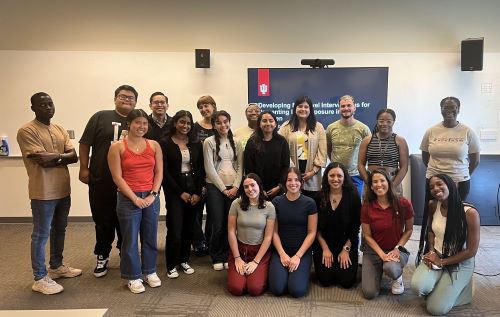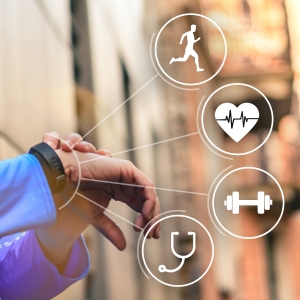In a world where often research internship opportunities require a certain level of experience, the 10 students from around the country who recently completed the six-week Research Experience in Asthma and Lung Disease for Emerging Adaptive Leaders (REAL-DEAL) as part of the Silveyra Lab came into the program with little or no experience with this subject—and left knowledgeable and empowered.
“My whole goal for this summer was to gain any research experience that I could; I was emailing everyone at IU, but it was hard to find labs that wanted someone who had no experience,” shares Maddie Coggan, a sophomore at IU Bloomington majoring in epidemiology and Spanish. “I am so grateful I got to be a part of this program.”
REAL-DEAL developed from a National Institutes of Health (NIH)-funded project entitled “Promoting Diversity, Equality, Inclusion and Accessibility (DEIA) in Lung Disease Research Through a Mentored Training Experience.” Department of Environmental and Occupational Health (EOH) Chair Patricia Silveyra, Ph.D. was awarded $396,210 over the course of one year to help students from minority groups develop their interest in STEM research and careers, with the help of co-investigators EOH Assistant Professor Sarah Commodore, Ph.D. and Assistant Professor Vanessa Martinez Kercher, Ph.D. from the Department of Health & Wellness Design.
Dr. Kercher led sessions over Zoom earlier this year, touching on relevant career and leadership topics such as imposter syndrome and time management, and the students worked in the Silveyra Lab throughout the month of June into the early part of July. At the conclusion of REAL-DEAL, all students successfully submitted novel data that will be presented at the Society of Advancement of Chicanos/Hispanics & Native Americans in Science (SACNAS) 2024 NDiSTEM Conference in Phoenix, Arizona this November.
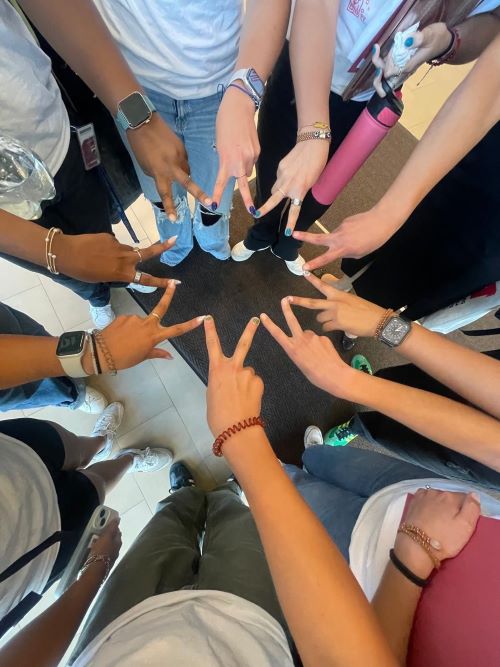
“The students were engaged, motivated, and passionate! I loved watching them form connections, help each other, be inspired by the speakers’ talks, and experience the discovery process by working with new and complex techniques,” shares Dr. Silveyra. “New knowledge about how sex hormones interact with the lung epithelium respond to environmental asthma triggers will be presented for the first time.”
Sarasi Gunasekara, an undergraduate at the University of Maryland pursuing biochemistry and molecular biology who also volunteers as an emergency medical technician (EMT) and firefighter, says she was drawn to the program to expand her knowledge about respiratory diseases.
“I handle a lot of patients who have trouble breathing and it is hard to tell if it is asthma, panic attack, or cardiac arrest,” says Gunasekara. “I didn’t really understand asthma as much as I do now, and I thought it was important to recognize the signs as soon as possible to determine proper treatment plans.”
Gunasekara was also pleased to have the opportunity to get a tour of the Bloomington Fire Department and do a ride-along with the crew while she was in town.
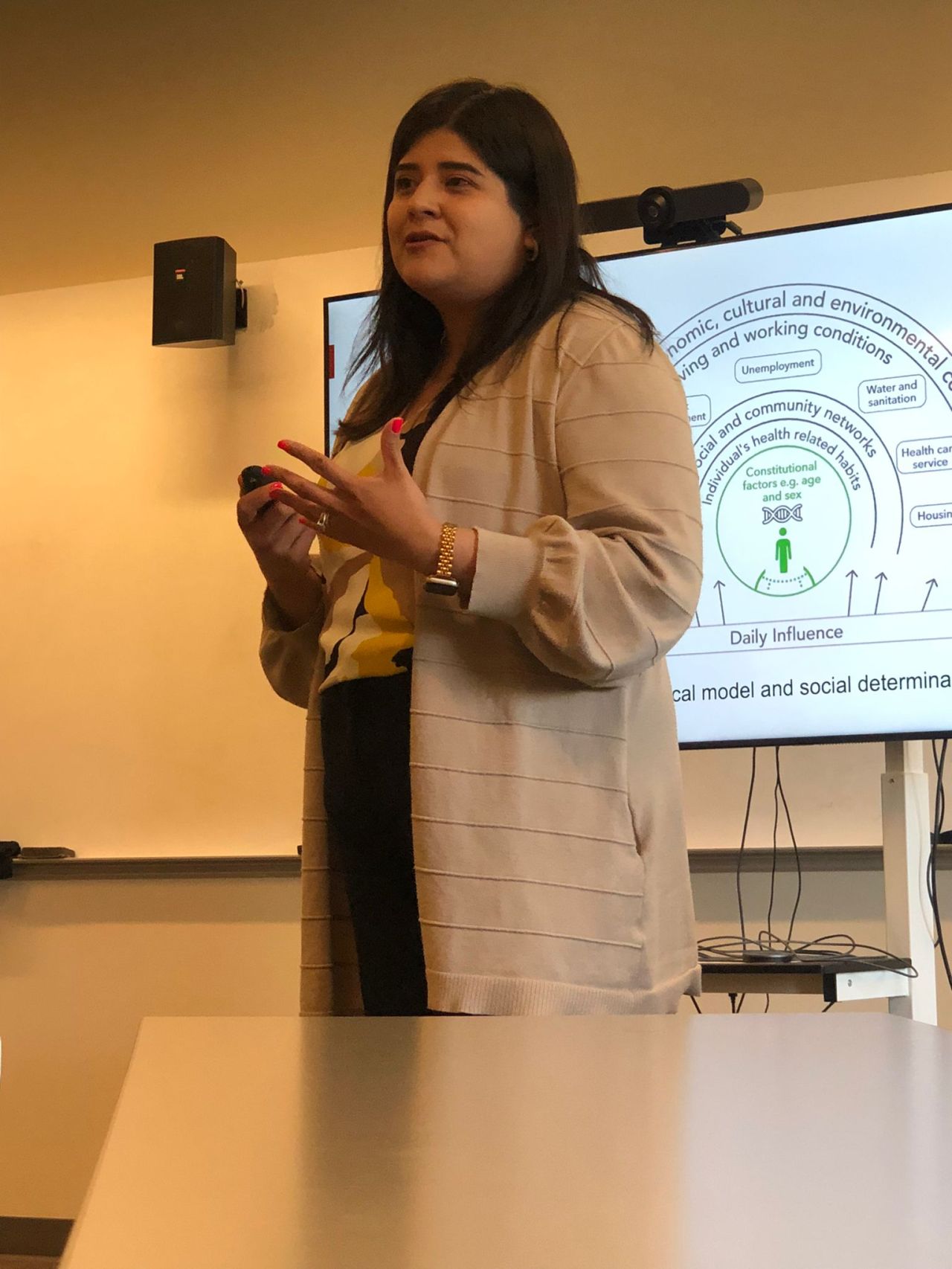
EOH Assistant Professor Michelle Del Rio, Ph.D. also lent her expertise during the six weeks the students lived and worked on campus. Dr. Del Rio discussed her examination of environmental impacts on health, particularly her research into lead exposure in homes and household dust.
“Most of us are graduating and taking similar career paths and Dr. Del Rio shared with us how her career path wasn’t a linear process,” says Daniella Gonzalez Rivera, an undergraduate at the University of Puerto Rico. “It is comforting to know that it doesn’t have to be a perfect process, and there are different ways to get to your goal.”
Dr. Del Rio says her career path was inspired by a desire to understand the connection between chronic health problems and environmental factors, having grown up in a low-income community of El Paso, Texas that was near a lead smelting site that operated for more than a century.
“As a little girl I would see all of this and hear my neighbors or family members complain about their chronic diseases such as cardiovascular issues, diabetes and kidney issues, and I always thought there was a connection between the environment and these diseases,” says Dr. Del Rio. “I wanted to find out whether there was a connection—and if so, do something to resolve it.”
Dr. Del Rio shared with the students that she initially pursued a pre-med track, but during her training realized that she liked the idea of prevention more than treatment. She also emphasized the importance of finding mentors who help students navigate their career path successfully. She championed the REAL-DEAL participants for seeking out research opportunities to gain skill and life experience and discover what they are passionate about.
“I found Dr. Del Rio’s presentation on her studies in lead exposure super interesting,” says Coggan. “It has been awesome to have more reassurance and exposure of things I could possibly go into.”
Rivera says the experience of collaborating in REAL-DEAL was a refreshing change from her often-independent research work in Puerto Rico, and she expressed appreciation for the supportive, non-competitive environment that was fostered. She has become close friends with Karen Fecht, a sophomore at IU Bloomington studying human biology, and they are making plans to reconnect in Puerto Rico.
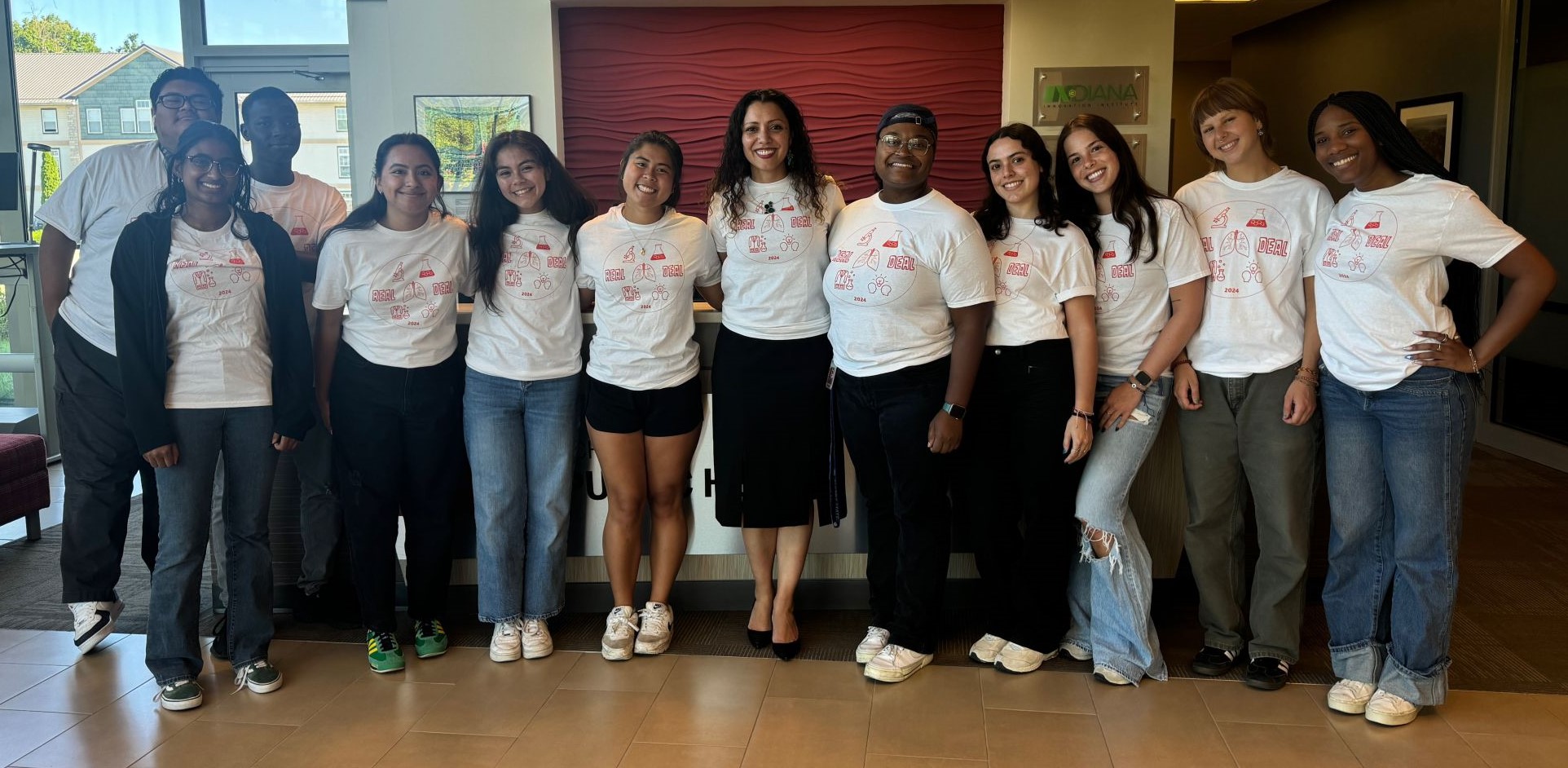
Dr. Silveyra says it was gratifying to see the students adapt to new environments and mentor each other; celebrating each other’s successes. She says many students “shared with me that the program allowed them to grow their confidence and get motivation to pursue graduate education in the future.”
“It is an awesome feeling to be around people who want you to succeed—it’s not a competition,” shares Fecht. “We all want to see each other do well and it is a really relieving feeling.”
For more stories about SPH-B students, faculty and staff making an impact locally and worldwide, visit go.iu.edu/48bx.


